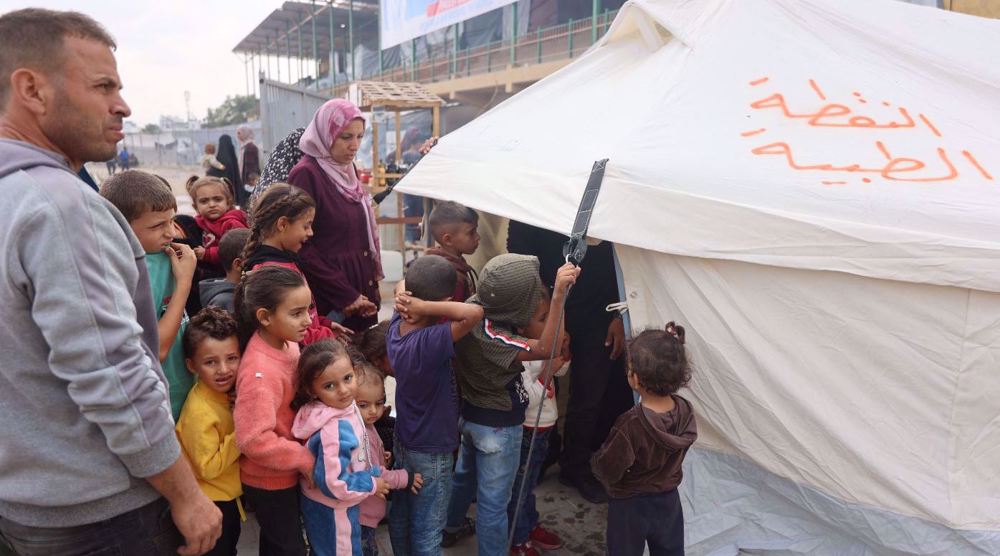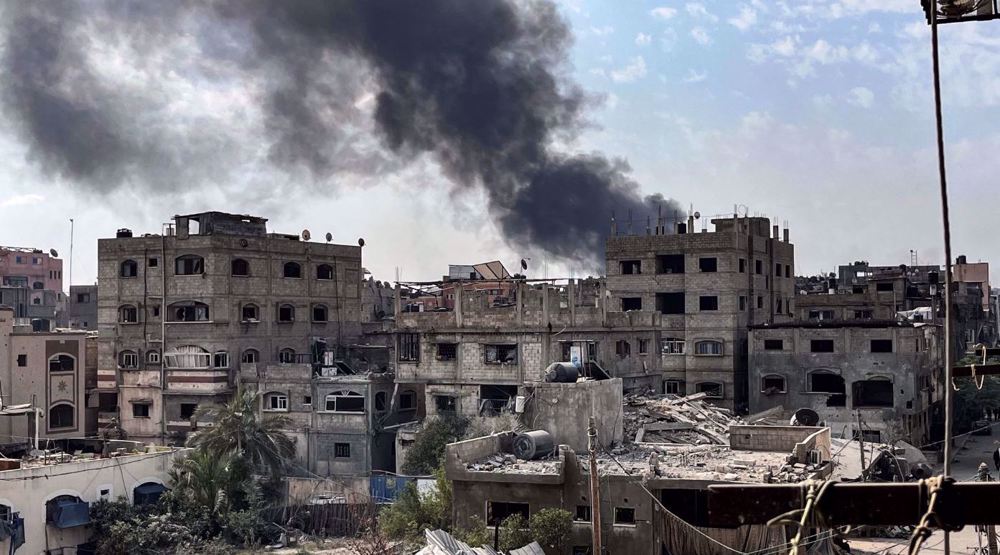Over two million fled as refugees this year, says UN
UN High Commissioner for Refugees Filippo Grandi says conflicts, violence, and persecution across the world, including in Myanmar, South Sudan and Syria, have forced over two million people to flee as refugees this year.
Speaking at the UNHCR’s annual Executive Committee meeting in the Swiss city of Geneva on Monday, Grandi called for more international cooperation and support to address the crisis.
“The despair of millions of men, women, and children driven from their homes, cast adrift into a life of uncertainty, is a stain on our collective conscience,” he said.
The UN refugee chief also pointed to the dire needs of more than half a million persecuted Rohingya Muslims who have fled into Bangladesh from Myanmar’s Rakhine state since August 25.
During the same period, 50,000 refugees had flooded out of South Sudan and another 18,000 had fled clashes in the Central African Republic, the UN official pointed out.
The ongoing foreign-backed militancy across Syria also continues to account for the world's largest number of forcibly displaced people.
The head of the UN refugee agency went on to say that resettlement was vital to addressing the growing refugee problem.
"Close to 1.2 million refugees need resettling globally," he said, voicing "major concern that fewer than 100,000 resettlement places are expected to be available this year, a drop of 43 percent from 2016."

Grandi regretted that countries were dragging their feet. He also warned that refugee rights were eroding worldwide, including in Europe and the United States, “driven by confused, sometimes frightened public opinions often stirred up by irresponsible politicians.”
“Border closures,… restrictive asylum procedures, indefinite detention in appalling conditions, offshore processing, pressure for premature returns all have regrettably proliferated,” he said.
Elsewhere in his remarks, the UN official said that his agency was facing a dramatic funding shortage and was increasingly being “faced with impossible choices.”
Last year, the UNHCR had $4.4 billion available funds but still ended the year with a 41-percent shortfall. And this year, the agency expects to receive less, with $4.2 billion available, leaving nearly half of the needs unmet.
The developments come as nearly 510,000 Rohingya Muslim refugees have crossed Myanmar’s borders into Bangladesh, where they are staying at refugee camps in Cox’s Bazar border district.
The influx broke out on August 25, when the Myanmar military unleashed a fresh crackdown campaign against Muslim villages in the western state of Rakhine following a series of armed attacks on army and police checkpoints there.
Europe, too, has been experiencing an influx of refugees over the past months. The asylum seekers flee conflict-ridden zones in North Africa and the Middle East, particularly Syria.
Many blame major European powers for the exodus, saying their policies have led to a surge in terrorism and war in violence-hit regions, forcing more people from their homes.
Israeli strike on Lebanon kills at least 15 people
Israeli forces kill 7 more Palestinians in West Bank
VIDEO | US presidential election
Netanyahu fires military affairs minister Gallant
Hezbollah attacks turn Israel’s Haifa into a ghost town
Iran’s FM meets Pakistani PM, discusses bilateral ties, Israeli atrocities
Iran ramps up gasoline output amid rising demand
UK foreign secretary under pressure over denial of genocide in Gaza










 This makes it easy to access the Press TV website
This makes it easy to access the Press TV website